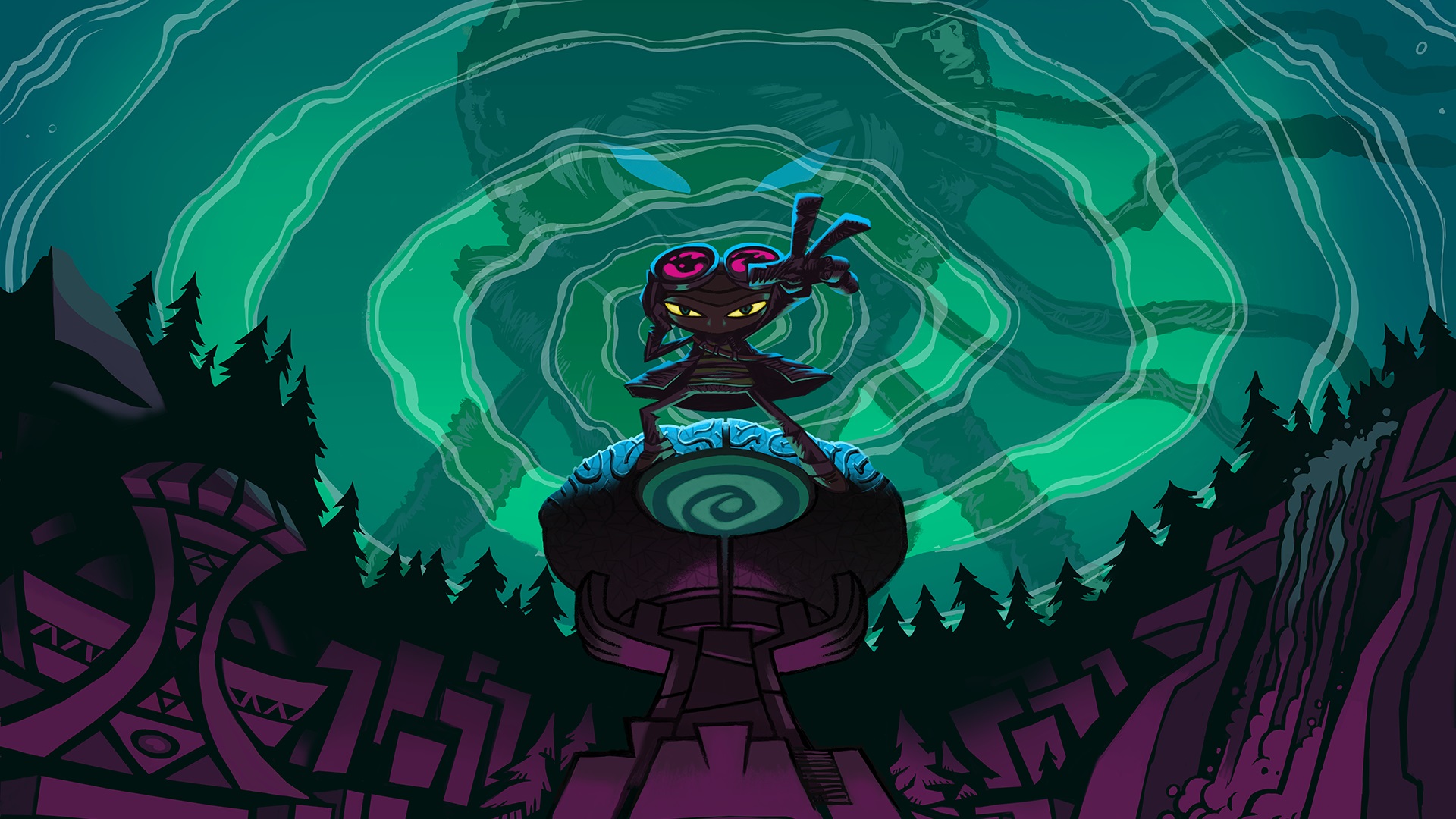
Sign up for breaking news, reviews, opinion, top tech deals, and more.
You are now subscribed
Your newsletter sign-up was successful
Double Fine never intended for Psychonauts to make a statement on mental health. But, nevertheless, the action platformer is considered by many to be one of the more positive visual representations of mental health issues in gaming media. Whether it’s sweeping away your mental cobwebs, laying down your emotional baggage or simply getting into the head of someone who seems - on the surface - to be simply a ‘bad’ person, Psychonauts is the ultimate lesson in the importance of mental wellness and empathy.
That’s not to say Psychonauts hasn’t got its share of issues. But developer Double Fine doesn’t shy away from that. Instead, the studio has taken on an approach to do better. With the upcoming Psychonauts 2, Double Fine head Tim Schafer and the team seem to be leaning into making a firmer - and more thoughtful - mental health statement.
For Mental Health Awareness Month, we spoke with Double Fine founder Tim Schafer about the lessons the studio learnt from Psychonauts, how Psychonauts 2 looks to build empathy and awareness of mental health challenges and on the positive impacts of gaming during a year that has taken a particular toll on our mental health.
- Best Xbox Series X games: the Xbox Series X/S games you need to play
Organic empathy
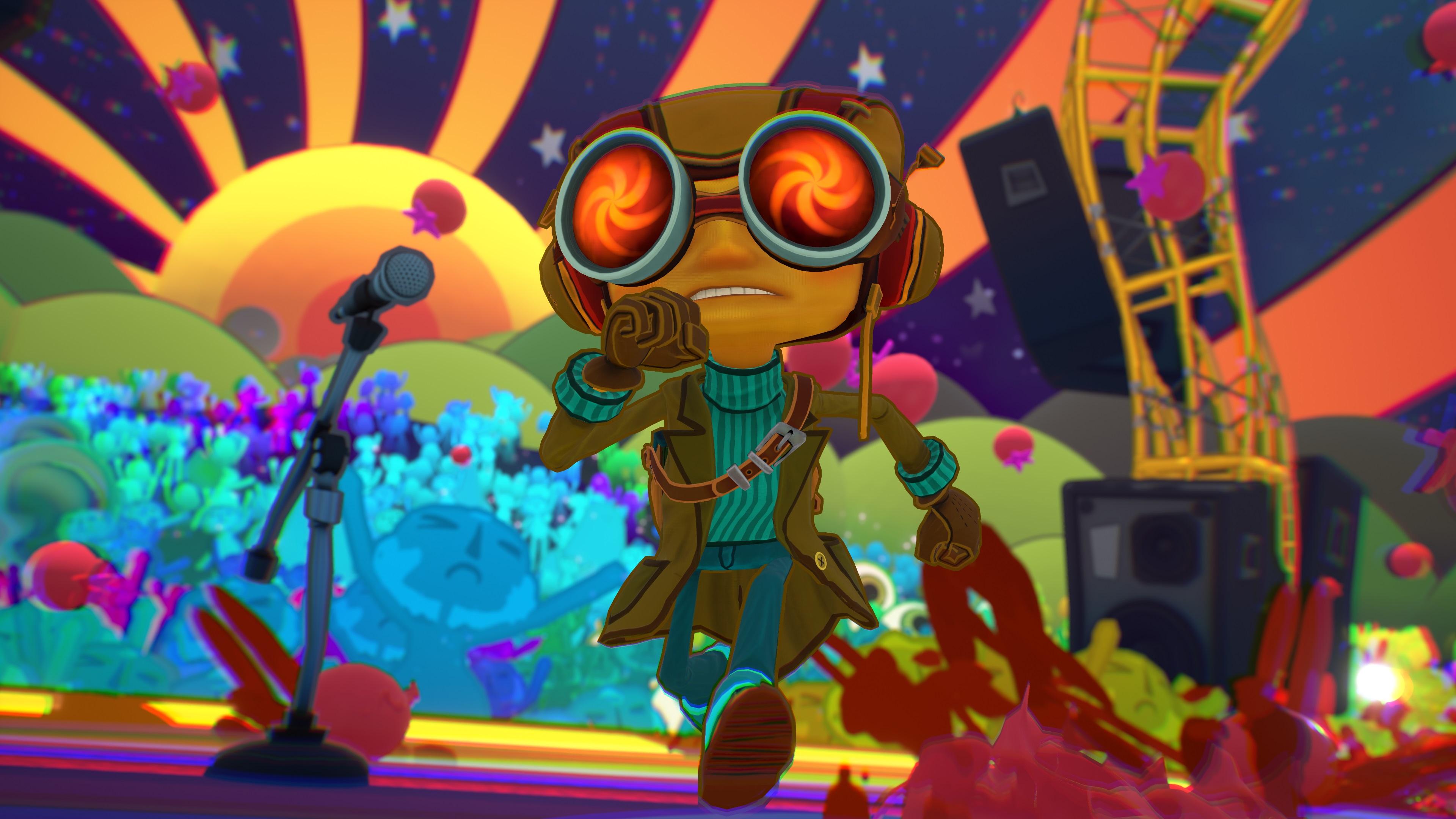
First released back in 2005, Double Fine had no grand plans for Psychonauts. The plan was pretty simple: create a game that was fun. But, during the writing process, the team’s own philosophies and writing inspirations began to filter through into the psychedelic platformer’s narrative. An integral part of this philosophy was what Schafer calls “humanistic, empathetic writing”.
"I think when we were making the game, it just naturally surfaced this belief that you should always be kind [to other people] because you never know what they're going through."
Tim Schafer - Double Fine
“I grew up reading Kurt Vonnegut,” Schafer tells us. “And I always felt like he got into what's funny and what's sad about life at the same time. I think that's just interesting and good, and really, really resonates with me. And so we just want to make a game that was fun to play and told an interesting story.”
What becomes clear, speaking to Schafer, is that he has a desire to understand how the human mind works, in particular how people create metaphors within their dreams and nightmares to reflect their real-life experiences. Psychonauts itself is full of metaphors, like the stamp-wielding Censors who keep intrusive thoughts at bay, and the game itself is presented in an almost dream-like fashion. But it’s this willingness of the developers to understand the human mind, in its varying forms, that seems to have allowed Psychonauts to become a positive, (mostly) well-rounded depiction of mental health. The empathy for human struggle is organic rather than forced.
“I think when we were making the game, it just naturally surfaced this belief that you should always be kind [to other people] because you never know what they're going through,” Schafer explains. “I think that's just something that naturally occurred in the game. Even the ‘villains’ in the game, you go into their minds and you see that they're dealing with some tough stuff - which is what's causing this negative behavior. And you might just help them realize they can overcome it, to varying degrees of success throughout the game.”
Sign up for breaking news, reviews, opinion, top tech deals, and more.
Learning from the past
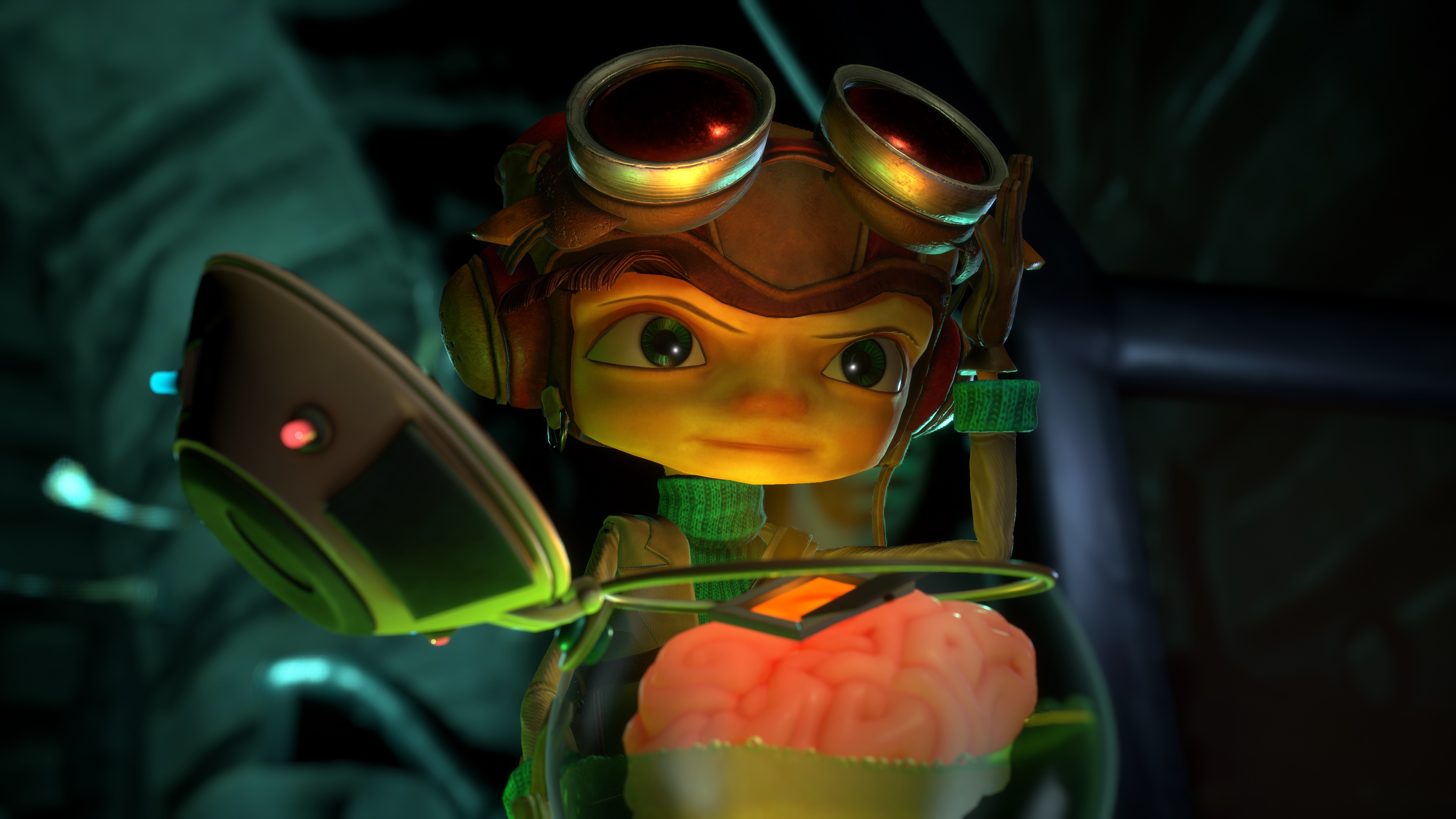
Following the reception to Psychonauts, Double Fine is being more intentional with its aim of raising awareness of mental health issues. But with that comes an acceptance that aspects of Psychonauts could have done better.
“We had a spooky asylum in the first game which wasn’t necessarily ideal as far as destigmatizing mental health,” Schafer tells us. “It was 2000 when I wrote down those ideas and we’ve all, I think, learned a lot and experienced a lot since then, in the past 20 years.
“You know, different language choices, words that are stigmatizing but are very common, but the more you think about them the more they set up an imaginary wall - which I don’t think exists - between people who are one side or the other of mental health. I think we all have brains and we all have ups and downs and we all have different things either directly happening to us or to people we love, and so it's something that we all share in. So I think there are words that make it seem like that is not the case. As you grow older, you just experience more things. You feel more pain or you interact with people who are feeling pain and it just grows your empathy hopefully.”
More thoughtfulness around mental health depictions doesn’t mean that the core of Psychonauts 2 will be changed, Schafer assures us that protagonist Raz is the same as always and we can still expect the level of “silly puns”, comedy and wacky characters that we’ve come to expect from Double Fine.
But while Psychonauts 2 sounds like it will stay true to the elements we loved most about its predecessor, it seems Double Fine is more aware of the more serious elements of the game too. Schafer tells us how Psychonauts 2 was described by one of its directors as a game about healing and it’s something that has been the crux of the sequel’s development.
“It's something to think about a lot in this game,” he explains. “And we think about it a lot more because the act of projecting yourself into someone else's mind is a very invasive thing. And so there's a lot more awareness about consent, and about responsibility.”
Shining light on blind spots
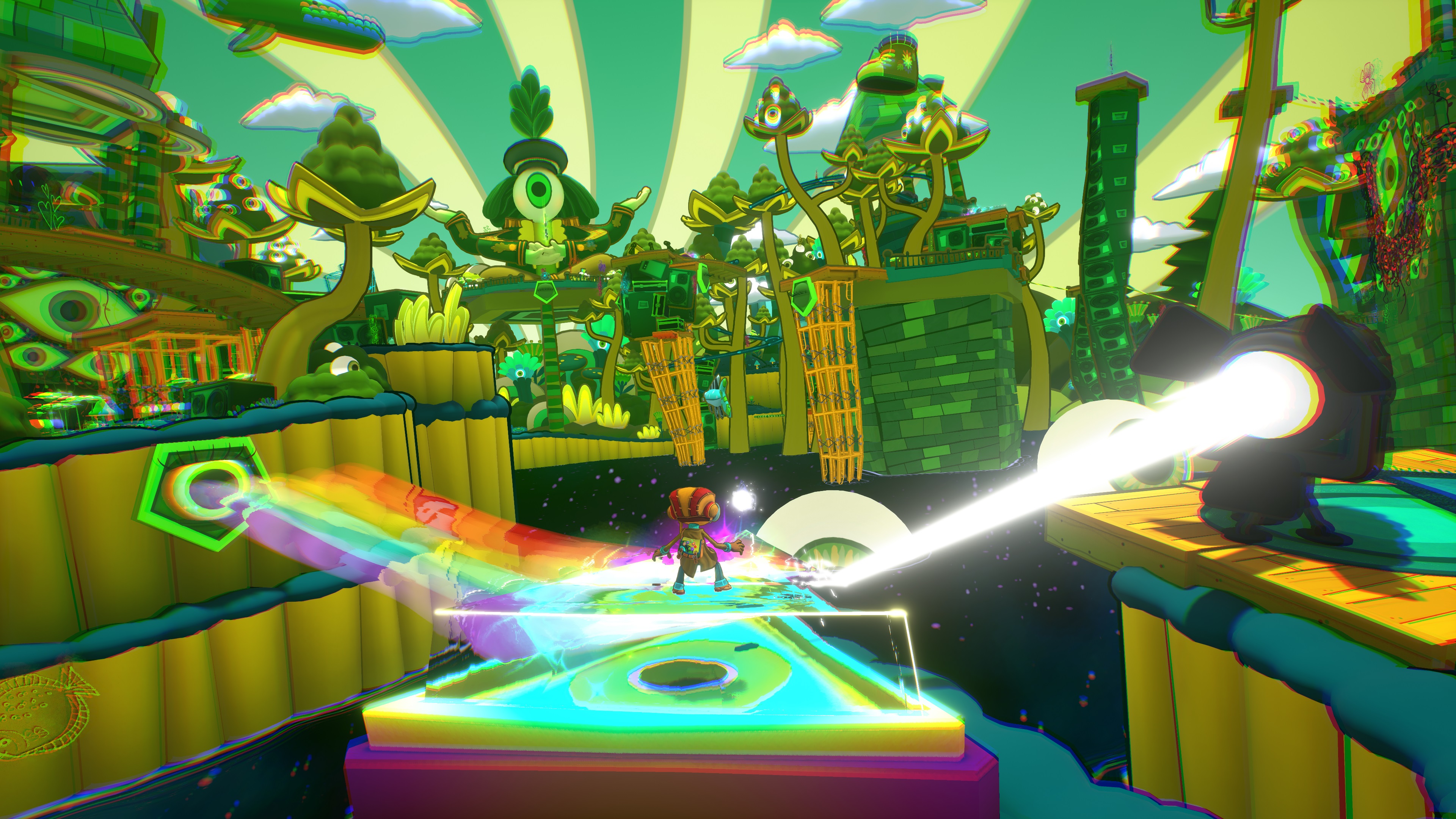
While Double Fine itself has been more aware of its own growth when it comes to mental health depiction, the studio has also been able to utilize Xbox resources to help fill in the blanks. Microsoft acquired Double Fine back in 2019, bringing the veteran studio under its Xbox Game Studios umbrella.
"You're always trying to elicit a certain feeling in your audience. And that means you care about how the player or the viewer or the listener is going to react to what you're creating."
Tim Schafer - Double Fine
According to Schafer, while the Double Fine team had utilized their own experiences and research to improve upon their understanding of portraying mental health well, the Microsoft acquisition built on this considerably, allowing the studio to access a number of resources to check for “blind spots” the team could have missed when it comes to a variety of aspects including diversity, inclusion and mental health. One of these key resources was Dr. Raffael Boccamazzo, a doctor of clinical psychology who consulted with Double Fine on the creation of Psychonauts 2 and is also working with Ninja Theory on Hellblade 2.
“People do testing for all kinds of different reasons, whether it's for legal liability or searching for trademark things,” Schafer says. “And so part of that you might think of as a protective thing, and some people might think of like, ‘oh, you're just taking the rough edges out of something and making it all PC’. But the thing I think that misunderstands is that if you're a writer, or an artist, or someone who creates something, you're always thinking of your audience. You're always trying to elicit a certain feeling in your audience. And that means you care about how the player or the viewer or the listener is going to react to what you're creating.
“So it's just a natural part of the artistic process. The creative process is to broaden your awareness of how people interpret what you're making. So if you're using a word that is very common to you, but someone hasn't brought up that [to a certain] community, this word means ‘this’ and you're like, ‘that's not the feeling I was going for’. So I think you can just replace all those thoughts about like, ‘are you trying to censor something’, with ‘I am trying to understand how what I create makes people feel at all times, no matter what’.
Walking the line between a light-hearted mental health portrayal and one which is seen as “punching down” isn’t an easy one and we’ve seen media struggle with it in the past. And while Schafer believes there’s somewhat of a clear boundary between both, he admits that having an outsider perspective to flag these aforementioned “blind spots” is a helpful resource.
“If you feel like you're putting down someone who has less power than you in the world, it always feels like a cheap shot,” he explains. “I feel like we have mostly gone with good intentions, which gets you part of the way but doesn't get you all the way. But if you deep down know you love people and you think they're redeemable, I think that instinct can keep you out of a lot of trouble. But you always will have blind spots to things, your experience in life is limited and you can't know everything. And so you need outside people to shed some light on those blind spots.”
Psychonauts 2 is more intentional
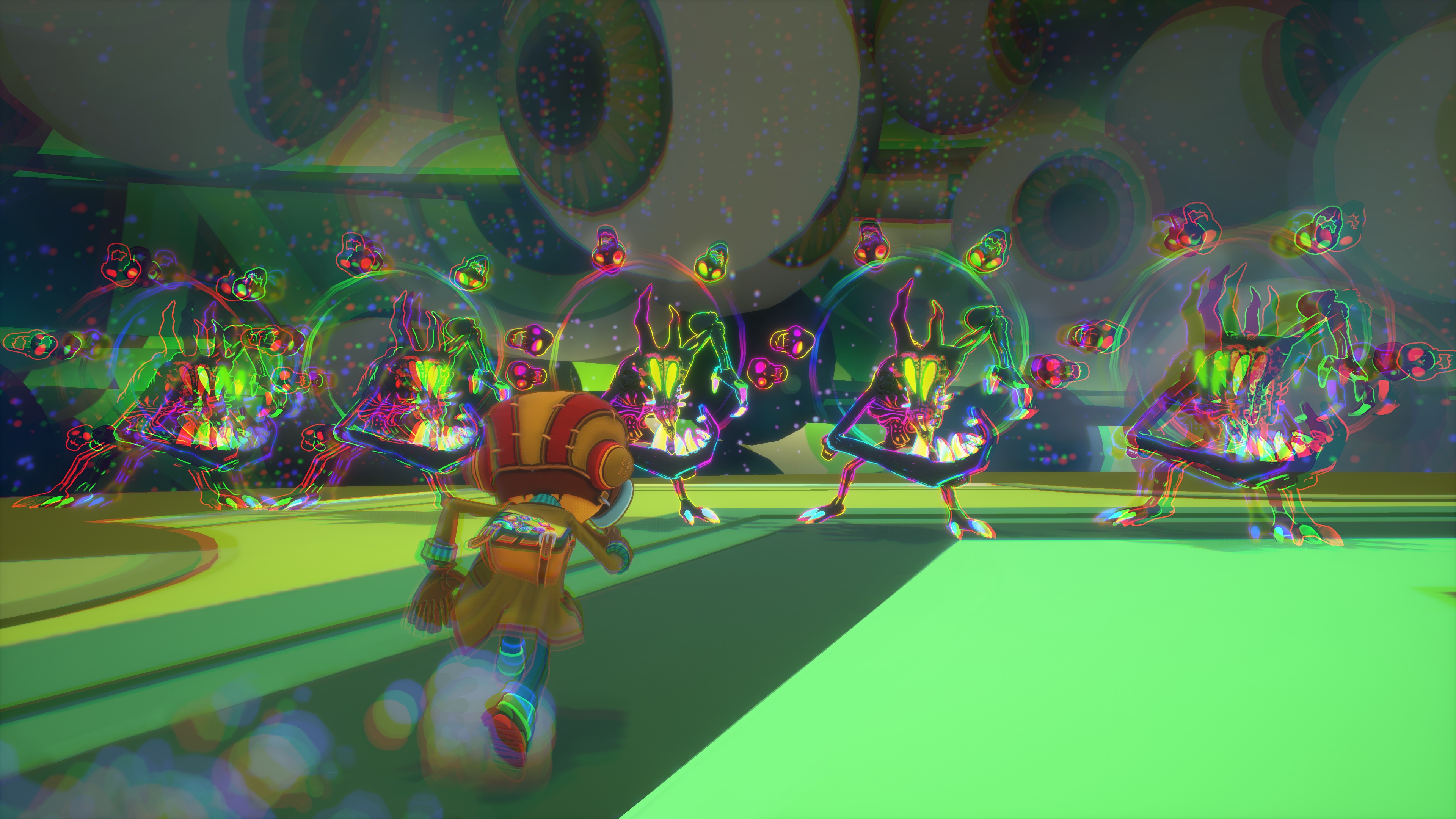
Psychonauts 2 looks to go harder on mental health and empathy awareness than we saw with its predecessor. Schafer tells us how the sequel will see Raz encountering a ‘panic attack’ enemy inside the minds of characters who have become overwhelmed. A panic attack in Psychonauts 2 is represented as a fast-moving enemy, which can take on many forms and can be hard to target.
“It's hard to really find the source of it,” Schafer explains. “So you learn the ability to slow it down. You learn this ability to use a time bubble to slow the enemy down, so you actually see what it is to target it and attack it directly, so you can find out which of the imposters is the real one.”
Schafer admits that this depiction isn’t science-based, but is instead an “artistic interpretation”.
“I think there's value in positive visualization,” he tells us. “Just the vision of seeing the problem have a solution is just very helpful practice to go through.”
The panic attack is just one of the new enemies we’ll be seeing in Psychonauts 2, while we’ll also be seeing the return of enemies like the Censors. Schafer tells us that these enemies are concocted through a mixture of the team’s own experiences and disorders they’ve read about, with a concept artistic bringing the metaphor to life.
The positive impact of games
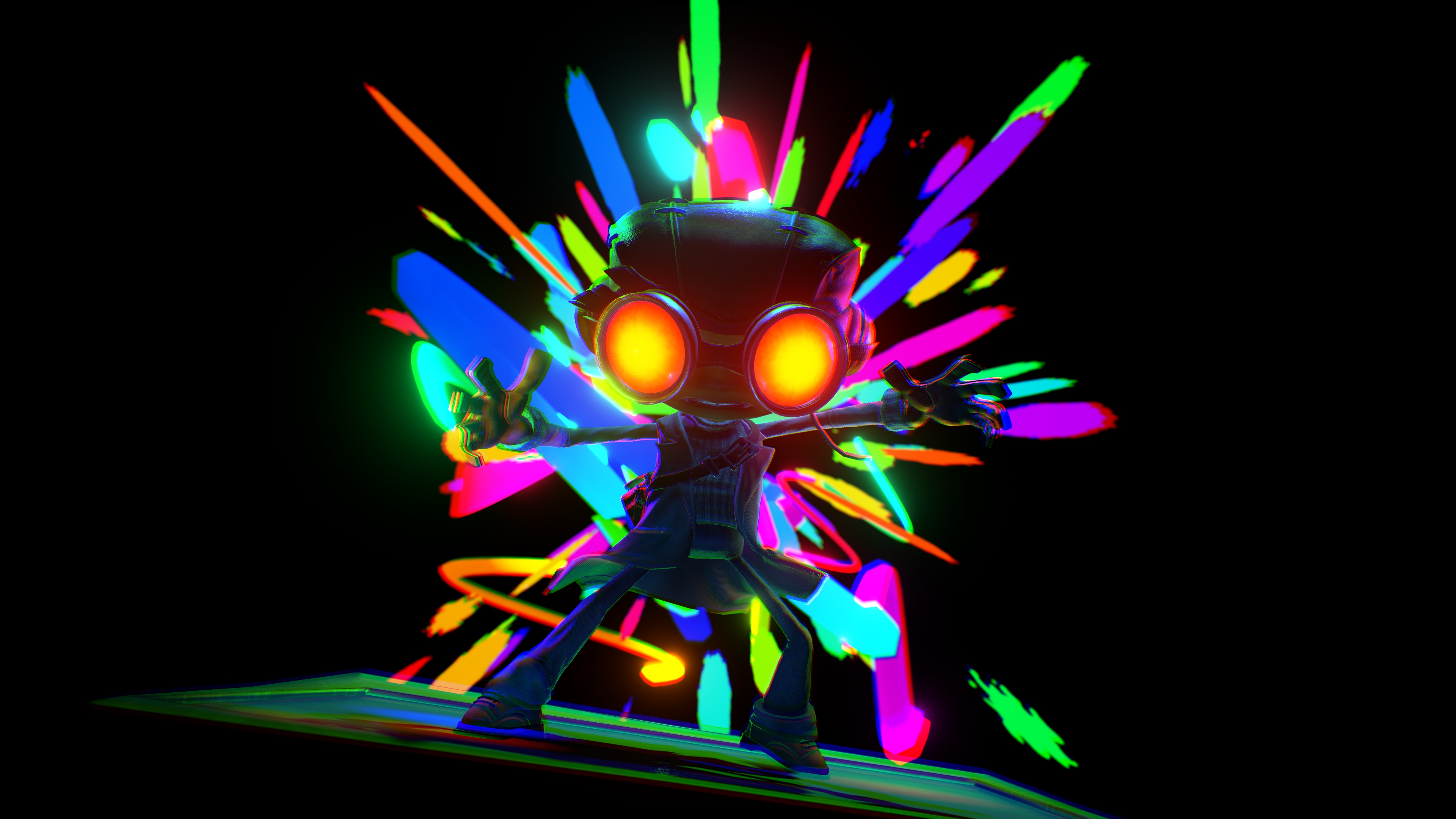
Tim Schafer has become somewhat of an advocate for how games can positively impact mental health, taking part in this May’s Xbox Spotlight on Mental Health Awareness month.
"It's the thing that in the end, in our lives, it's the final frontier. What we're exploring our whole lives, in the end, turns out to be our own mind."
Tim Schafer - Double Fine
“I think writers are always trying to get inside the head of everyone you write, every character, to know how it works in there, so you’re always thinking about the human mind,” Schafer explains when asked about why mental health advocacy is important to him. “I'm always thinking about my brain and why it works the way it does. I’m always wondering ‘why did I just think that?’ Or ‘why did they get happy just then?’ or ‘why did I feel depressed just then?’ I'm always analyzing that and I think it's just fascinating.
“It's the thing that in the end, in our lives, it's the final frontier. What we're exploring our whole lives, in the end, turns out to be our own mind.”
In a year that has taken a serious toll on our mental health, we’ve seen many turning to gaming as a source of comfort. In a study conducted by the Xbox Research AccessibilityCommunity Feedback Program, a group made up of players with disabilities, 84% of respondents stated that gaming had a positive impact on their lives during the Covid-19 pandemic.
Schafer tells us he sees games as almost a form of “immersion therapy”, allowing players to experience physical, emotional or social situations that perhaps they’re scared of in real life.
“Games - in a really unique, only to games type way - lets you play in situations that you might have a great fear or anxiety about, but you can do it in a safe situation. You can always turn off the TV, you can always put the controller down,” Schafer tells us. “I'm not saying that games replace therapy, but I think they can be a positive thing in people's lives, particularly for people who might have a lot of barriers to trying those other solutions.”
Psychonauts 2 is due to release on Xbox Series X/S, Xbox One and PC, but no release date has been announced. The first game is now available on Xbox Game Pass, and the sequel will also launch day one on Microsoft's subscription service.
- Best Xbox One games: the Xbox One games you need to play
An award-winning games journalist, with seven years of experience in games journalism and a degree in journalism from City University, London, Vic brings experience from IGN, Eurogamer, The Telegraph, VG247, Dot Esports and more to the TechRadar table. You may have even heard her on the radio or speaking on a panel, as she’s previously appeared on BBC Radio 4, BBC Radio 5, BBC Radio Ulster and more. Not only is Vic passionate about games, but she's appeared on both panels and podcasts to discuss mental health awareness. Make sure to follow her on Twitter for more.